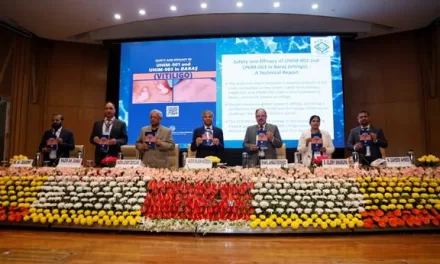Obesity rates in the Pacific Islands are reaching alarming levels, with half of the population classified as overweight or obese. This growing epidemic increases the risk of chronic diseases such as diabetes, heart disease, strokes, and certain cancers. While multiple factors contribute to obesity, a critical but often overlooked cause is limited access to clean drinking water.
A recent study conducted in Kiribati, a Pacific island nation, sheds light on the direct link between water insecurity and sugary drink consumption. Researchers surveyed more than 2,000 households across 21 islands, both rural and urban, to track water supply sources and sugary drink intake. Their findings highlight a troubling pattern: households without access to safe, piped water are turning to sugary alternatives like soft drinks and juices, further exacerbating obesity rates.
Water Insecurity and Sugary Drink Consumption
Water insecurity is a significant issue in Kiribati, where 40% of households rely on unprotected groundwater and 28% on rainwater for drinking. The study revealed that these households consumed 381-406 grams more sugary drinks per week compared to those with access to a piped water system. For those without reliable water sources, this means an average weekly consumption of over 1.7 liters of sugary beverages.
This dietary shift is a key contributor to the obesity crisis in the Pacific Islands, where globalization and urbanization have already led to a decline in traditional diets—once rich in fresh fish, root vegetables, and local fruits—in favor of processed foods and sugary drinks that are calorie-dense but nutritionally poor.
Solutions to Combat Obesity and Water Insecurity
The problem is not isolated to Kiribati but is prevalent across the Pacific Islands, where access to clean water is scarce and dietary habits are shifting. Only one-third of Kiribati’s population has access to a safe, piped water system. The rest depend on groundwater and rainwater but cannot afford the necessary filtration and treatment systems to make it safe for consumption.
Improving water access could help address the broader public health crisis. Potential solutions include:
- Providing affordable tank kits, filters, and treatment systems for households that rely on rainwater.
- Developing seawater desalination plants powered by clean energy, though these would require significant investment.
- Implementing policies like sugary drink taxes, which have proven effective in other regions. In Mexico, a 10% price increase on sugary drinks led to an 11.6% reduction in consumption.
Climate Change: A Growing Challenge
The situation is compounded by climate change, which is intensifying water insecurity in small island nations like Kiribati. Rising sea levels are contaminating freshwater sources with salt, and more frequent droughts are depleting already limited resources. These climate-related pressures are forcing communities to rely even more on sugary drinks, creating a vicious cycle of poor nutrition and health outcomes.
This pattern is not unique to Kiribati. Other Pacific nations, including Niue, Tonga, Tuvalu, and Palau, face similar challenges, as do remote Indigenous communities in Australia where safe drinking water is not guaranteed.
A Path Forward
Addressing the intertwined issues of water insecurity and obesity presents an opportunity to build long-term, sustainable solutions. By improving access to clean drinking water and reducing sugary drink consumption, Pacific Island nations can work towards combating the growing public health threat of obesity while simultaneously strengthening their resilience to the effects of climate change.
As the world grapples with the twin challenges of public health and climate change, the situation in the Pacific Islands serves as a stark reminder of the critical need for coordinated solutions that prioritize both environmental and health sustainability.











